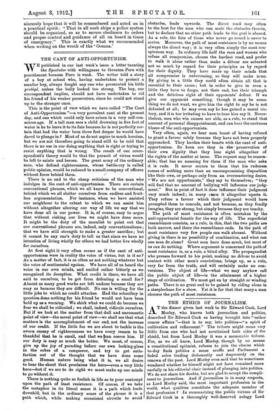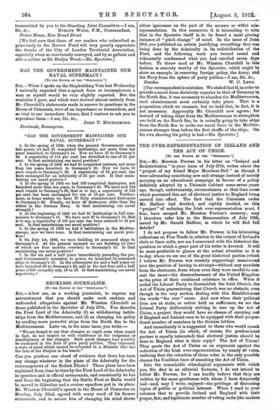THE ETHICS OF JOURNALISM.
AT the dinner given last week to Sir Edward Cook, Lord Morley, who knows both journalism and politics, described Sir Edward Cook as having brought into "rather coarse affairs "—that is to say, into politics—" a spirit of cultivation and refinement." The tribute might mean very little from one who had not scrutinized both sides of the shield, but from Lord Morley it was a memorable tribute. For, as we all know, Lord Morley, though by no means a constitutional optimist, refuses to join the chorus which to-day finds politics a mean scuffle and Parliament a faded salon trading dishonestly and desperately on the renown of the past. Lord Morley even said that he sometimes wondered whether he himself might not have remained more usefully in his editorial chair instead of plunging into politics. We do not share his doubts, but are glad to accept the compli- ment to journalism. And if journalism is in many respects, as Lord Morley said, the most important profession in the world, what qualities constitute the adequate member of that profession ? In summarizing the public virtues of Sir Edward Cook in a thoroughly well-deserved eulogy Lord
transmitted by you to the Standing Joint Committee.—I am,
Sir, &e., EVELYN WOOD, F.M., Commandant. Friars House, New Broad Street.
[We feel sure that those of our readers who subscribed so generously to the Review Fund will very greatly appreciate the thanks of the City of London Territorial Association, especially when so courteously conveyed, and by so gallant and able a soldier as Sir Evelyn Wood.—En. Spectator.]





































 Previous page
Previous page